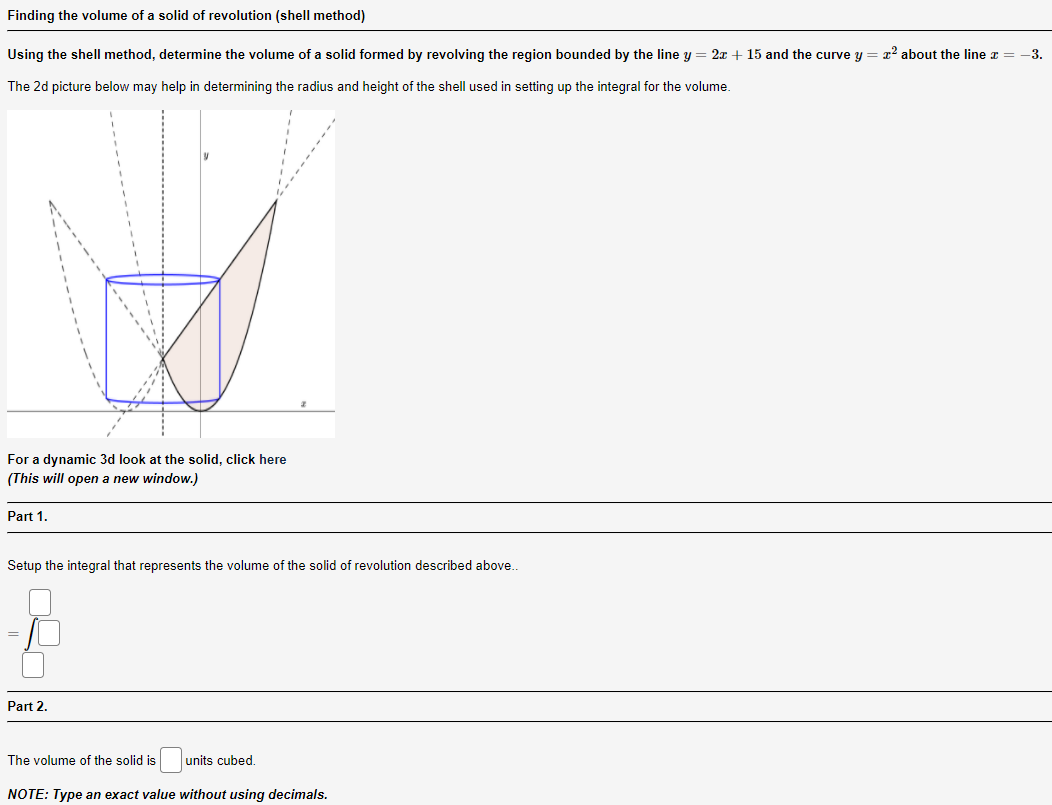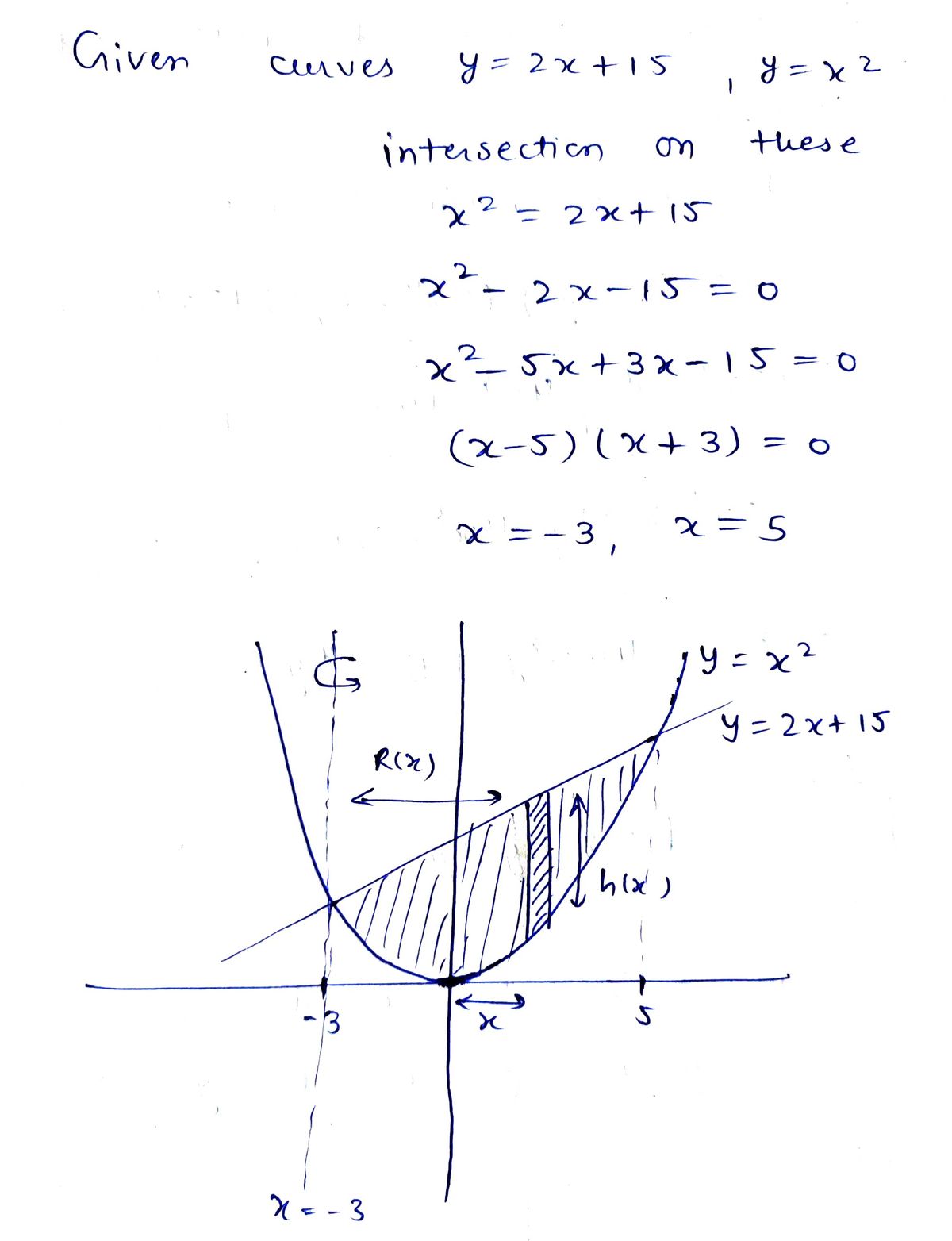Finding the volume of a solid of revolution (shell method) Using the shell method, determine the volume of a solid formed by revolving the region bounded by the line y = 2x + 15 and the curve y r2 about the line z = -3. The 2d picture below may help in determining the radius and height of the shell used in setting up the integral for the volume. For a dynamic 3d look at the solid, click here (This will open a new window.) Part 1. Setup the integral that represents the volume of the solid of revolution described above. Part 2. The volume of the solid is units cubed. NOTE: Type an exact value without using decimals.
Finding the volume of a solid of revolution (shell method) Using the shell method, determine the volume of a solid formed by revolving the region bounded by the line y = 2x + 15 and the curve y r2 about the line z = -3. The 2d picture below may help in determining the radius and height of the shell used in setting up the integral for the volume. For a dynamic 3d look at the solid, click here (This will open a new window.) Part 1. Setup the integral that represents the volume of the solid of revolution described above. Part 2. The volume of the solid is units cubed. NOTE: Type an exact value without using decimals.
Calculus: Early Transcendentals
8th Edition
ISBN:9781285741550
Author:James Stewart
Publisher:James Stewart
Chapter1: Functions And Models
Section: Chapter Questions
Problem 1RCC: (a) What is a function? What are its domain and range? (b) What is the graph of a function? (c) How...
Related questions
Question
100%

Transcribed Image Text:Finding the volume of a solid of revolution (shell method)
Using the shell method, determine the volume of a solid formed by revolving the region bounded by the line y = 2x + 15 and the curve y = x2 about the line z =
-3.
The 2d picture below may help in determining the radius and height of the shell used in setting up the integral for the volume.
For a dynamic 3d look at the solid, click here
(This will open a new window.)
Part 1.
Setup the integral that represents the volume of the solid of revolution described above.
Part 2.
The volume of the solid is
units cubed.
NOTE: Type an exact value without using decimals.
Expert Solution
Step 1

Trending now
This is a popular solution!
Step by step
Solved in 2 steps with 2 images

Recommended textbooks for you

Calculus: Early Transcendentals
Calculus
ISBN:
9781285741550
Author:
James Stewart
Publisher:
Cengage Learning

Thomas' Calculus (14th Edition)
Calculus
ISBN:
9780134438986
Author:
Joel R. Hass, Christopher E. Heil, Maurice D. Weir
Publisher:
PEARSON

Calculus: Early Transcendentals (3rd Edition)
Calculus
ISBN:
9780134763644
Author:
William L. Briggs, Lyle Cochran, Bernard Gillett, Eric Schulz
Publisher:
PEARSON

Calculus: Early Transcendentals
Calculus
ISBN:
9781285741550
Author:
James Stewart
Publisher:
Cengage Learning

Thomas' Calculus (14th Edition)
Calculus
ISBN:
9780134438986
Author:
Joel R. Hass, Christopher E. Heil, Maurice D. Weir
Publisher:
PEARSON

Calculus: Early Transcendentals (3rd Edition)
Calculus
ISBN:
9780134763644
Author:
William L. Briggs, Lyle Cochran, Bernard Gillett, Eric Schulz
Publisher:
PEARSON

Calculus: Early Transcendentals
Calculus
ISBN:
9781319050740
Author:
Jon Rogawski, Colin Adams, Robert Franzosa
Publisher:
W. H. Freeman


Calculus: Early Transcendental Functions
Calculus
ISBN:
9781337552516
Author:
Ron Larson, Bruce H. Edwards
Publisher:
Cengage Learning